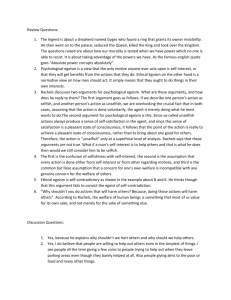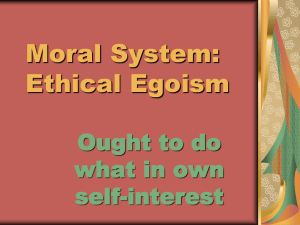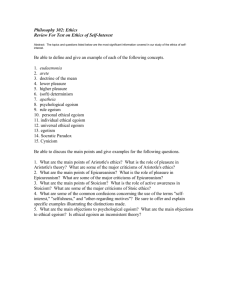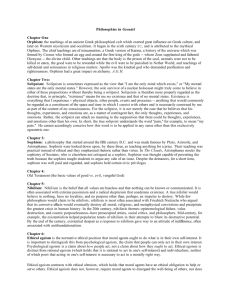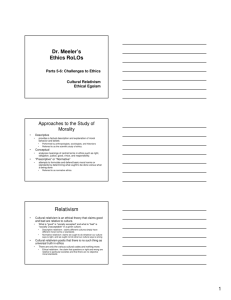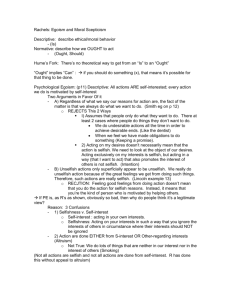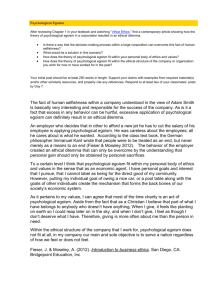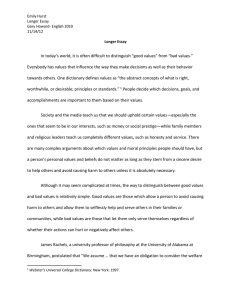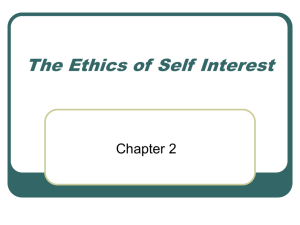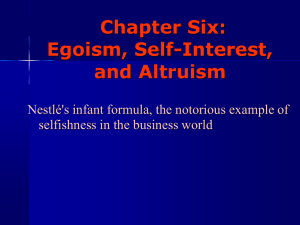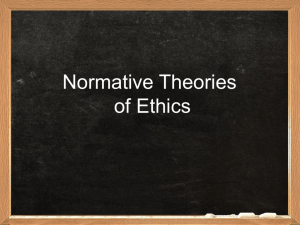12042011_Final_Review
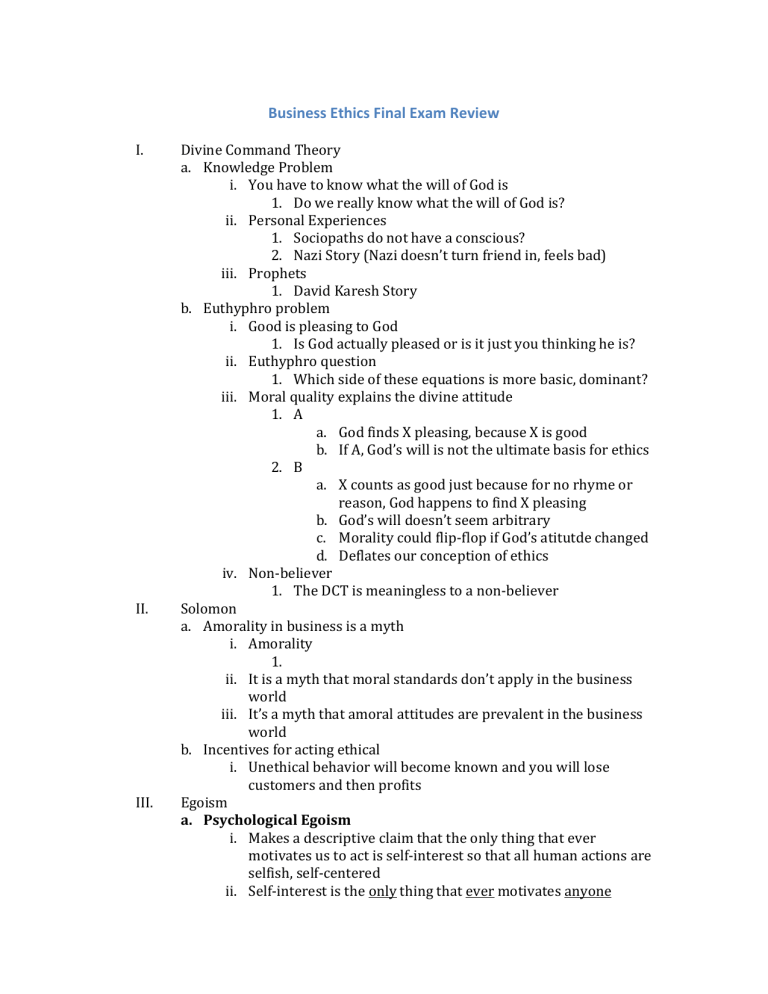
Business Ethics Final Exam Review
I.
Divine Command Theory a.
Knowledge Problem i.
You have to know what the will of God is
1.
Do we really know what the will of God is? ii.
Personal Experiences
1.
Sociopaths do not have a conscious?
2.
Nazi Story (Nazi doesn’t turn friend in, feels bad) iii.
Prophets
1.
David Karesh Story b.
Euthyphro problem i.
Good is pleasing to God
1.
Is God actually pleased or is it just you thinking he is? ii.
Euthyphro question
1.
Which side of these equations is more basic, dominant? iii.
Moral quality explains the divine attitude
1.
A a.
God finds X pleasing, because X is good b.
If A, God’s will is not the ultimate basis for ethics
2.
B a.
X counts as good just because for no rhyme or reason, God happens to find X pleasing b.
God’s will doesn’t seem arbitrary c.
Morality could flip-flop if God’s atitutde changed d.
Deflates our conception of ethics iv.
Non-believer
1.
The DCT is meaningless to a non-believer
II.
Solomon a.
Amorality in business is a myth i.
Amorality
1.
ii.
It is a myth that moral standards don’t apply in the business world iii.
It’s a myth that amoral attitudes are prevalent in the business world b.
Incentives for acting ethical i.
Unethical behavior will become known and you will lose customers and then profits
III.
Egoism a.
Psychological Egoism i.
Makes a descriptive claim that the only thing that ever motivates us to act is self-interest so that all human actions are selfish, self-centered ii.
Self-interest is the only thing that ever motivates anyone
iii.
Problems with psychological egoism
1.
We wouldn’t get the self gratification if we didn’t care about, weren’t aiming at, the altruistic goal
2.
X is possible motive -> X is actual motive
3.
Implies no one loves anyone else but themselves or they might say they love others; their love for others never is a motivating force b.
Ethical/Normative Egoism i.
Normative claim aka normative egoism ii.
We aught to act only from self-interest. The interest of others are never relevant or at least never directly relevant to the assessment of your behavior iii.
We should always maximize our self-interest iv.
Problems with ethical/normative egoism
1.
There are no good arguments in support of it
2.
It clashes sometimes dramatically with our strongest moral intuitions
3.
Self-defeating or self refuting philosophy?
IV.
Knowledge Conditions a.
4 Questions i.
What decisions must be made ii.
By when iii.
Choices available iv.
Needed information v.
Failure to meet these conditions lessens an individuals responsibilities b.
Culpable (Fault) Ignorance i.
We often hold people responsible for getting themselves into the very predicament that seems to relieve them of responsibility
1.
Drunk driving
2.
Ignornace c.
Preemptive Duties i.
Obligations to investigate ii.
Obligations to communicate iii.
Obligations to protect iv.
Obligations to prevent v.
Obligations to precaution d.
Start with 09212011
